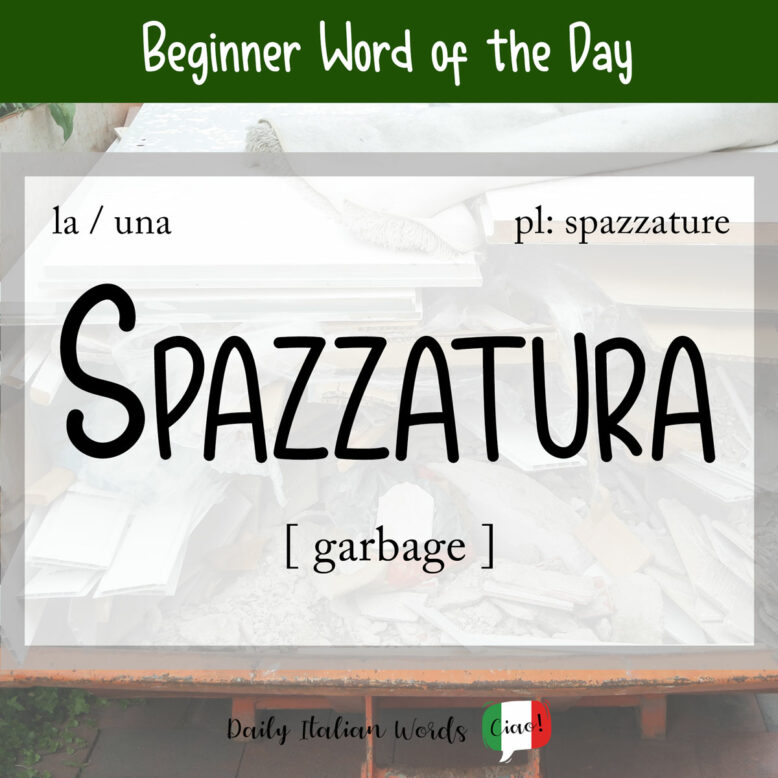I never cease to be amazed at how Italian manages to make even the ugliest things in life sound beautiful. This is certainly the case with the word spazzatura which translates as garbage, trash or rubbish.

Spazzatura is a feminine noun whose plural form is spazzature.
la spazzatura
una spazzatura
le spazzature*
delle spazzature*
*Note: keep in mind that the plural form is used much less often than the singular form.
Some common terms that contain the word spazzatura include:
- bidone della spazzatura = garbage can / rubbish bin
- secchio della spazzatura = garbage can / rubbish bin
- cestino della spazzatura = wastepaper basket
- cassonetto della spazzatura = dumpster / large bin with wheels for outdoor rubbish collection
- sacco della spazzatura = garbage bag
- camion della spazzatura = garbage truck
- raccolta della spazzatura = garbage collection
Bisogna portare fuori la spazzatura. Comincia a esserci un odore poco piacevole in cucina!
We need to take out the trash. There is a rather unpleasant smell in the kitchen.

Two common synonyms for spazzatura are rifiuti and immondizia. They are interchangeable for the most part, although rifiuti and immondizia tend to be used in more formal contexts.
Another very common synonym that refers specifically to the bidone / secchio della spazzatura (garbage can) is pattumiera.
Similar to the English words junk and trash, spazzatura can denote things of little to no value such as cibo spazzatura (junk food), televisione spazzatura (trash TV), and e-mail spazzatura (junk mail).
Non ne posso più di guardare questa tv spazzatura!
I can’t watch this trash TV anymore!

Spazzatura is also how you say sweeping in Italian, which makes sense as the word derives from spazzare meaning to sweep. For example, street sweeping translates as la spazzatura delle strade.
Heather Broster is a graduate with honours in linguistics from the University of Western Ontario. She is an aspiring polyglot, proficient in English and Italian, as well as Japanese, Welsh, and French to varying degrees of fluency. Originally from Toronto, Heather has resided in various countries, notably Italy for a period of six years. Her primary focus lies in the fields of language acquisition, education, and bilingual instruction.


